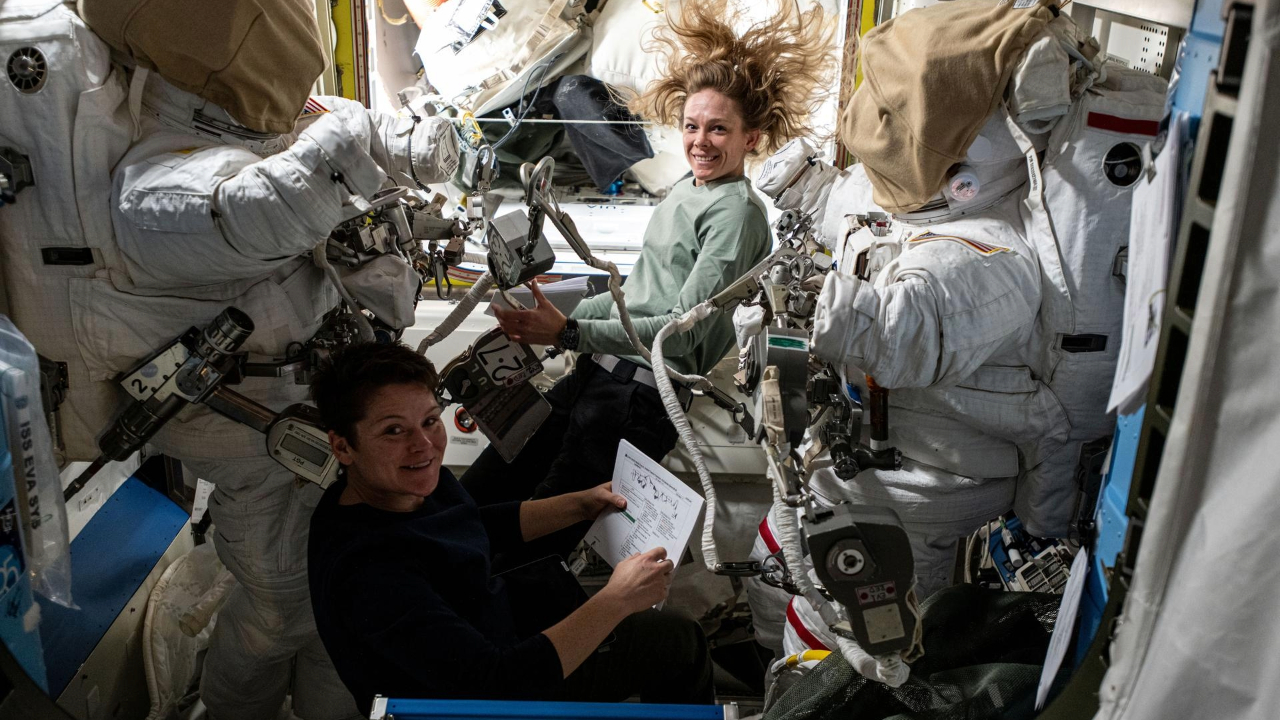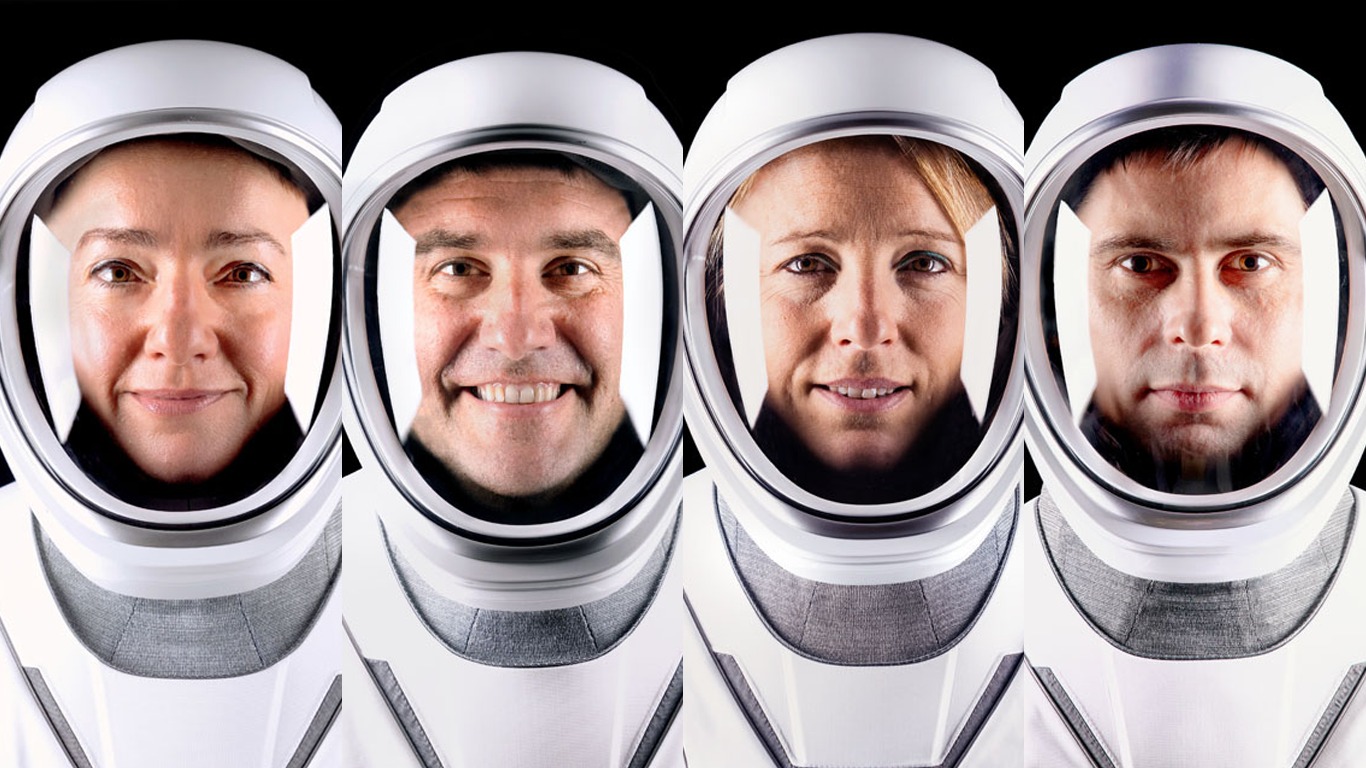Astronaut arteries are A-OK after living on the International Space Station, per a new study
Five years after their space jaunts, the astronauts appear to be in good cardiovascular health.

Living in microgravity changes the human body — and usually for the worse. Bone density decreases, muscles atrophy, and eyes swell, to name a few of the physical side effects of long-duration spaceflight. However, according to a new study, there's some good news for astronauts: Spending extended time on the International Space Station (ISS) doesn't pose any risks to their arteries.
Researchers studied 13 NASA astronaut volunteers, ranging in age from the late 30s to late 50s, who spent between four months and a year on the ISS. They took ultrasound images of the participants' carotid and brachial arteries before, during and immediately after spaceflight, as well as at the one-, three-, and five-year marks following spaceflight. And, wonderful news — everyone's arteries looked great.
"Long-duration spaceflight missions on the ISS did not result in thickening of the carotid artery wall, increased CCA stiffness, endothelial dysfunction, or development of new symptoms or signs of cardiovascular disease in the first 5 years after long-duration spaceflight," wrote the researchers in their study. They also noted that any risk of cardiovascular disease was likely due to natural aging, not spaceflight.
The study did, however, find oxidative stress and inflammation — signs of concern for the cardiovascular system — in the astronauts' blood and urine samples. These disappeared within one week of returning to Earth. Ultimately, it seems that the cardiovascular system is quite resilient when it comes to spending time in microgravity.
Of course, this is just one study. As we look toward returning to the moon and establishing a human presence on Mars, we'll want to continue medical research on astronauts to ensure their long-term health.
"Continued long-term surveillance of cardiovascular health in the larger astronaut cohort is necessary to characterize the lifetime risk of disease, particularly in astronauts who venture beyond low Earth orbit and are exposed to deep space radiation," wrote the researchers.
A paper about the research was published on June 10 in the Journal of Applied Physiology.
Breaking space news, the latest updates on rocket launches, skywatching events and more!

Space.com contributing writer Stefanie Waldek is a self-taught space nerd and aviation geek who is passionate about all things spaceflight and astronomy. With a background in travel and design journalism, as well as a Bachelor of Arts degree from New York University, she specializes in the budding space tourism industry and Earth-based astrotourism. In her free time, you can find her watching rocket launches or looking up at the stars, wondering what is out there. Learn more about her work at www.stefaniewaldek.com.
You must confirm your public display name before commenting
Please logout and then login again, you will then be prompted to enter your display name.
